15+ Pros and Cons of Managed WordPress Hosting (Common Myths Debunked)!
- By
- Last updated:
- 4 Comments
Let me break this to you right out of the gate: Not all managed WordPress hosting is worth the price tag.
Even worse, some so-called managed platforms are only managed in name — and you’ll find very few actual benefits once you start looking under the hood.
In this post, we’ll break down the pros and cons of managed WordPress hosting, debunk any myths and help you to decide whether you should get into managed WordPress hosting or not.
Table of Contents
- What Is Managed WordPress Hosting?
- 👍 The Pros of Managed WordPress Hosting
- Pro #1: Servers Optimized for WordPress
- Pro #2: Easier to Use with a Better User Panel
- Pro #3: Reliability and Peace of Mind That Everything Works
- Pro #4: Everything Is Managed for You
- Pro #5: Better Performance/Website Speed
- Pro #6: Better Security
- Pro #7: Automated Updates and Backups
- Pro #8: Automated WordPress Installs
- Pro #9: Guided or Concierge Site Migrations
- Pro #10: Better Customer Support
- Pro #11: One-Click Staging
- Pro #12: Bonuses and Extra Features
- 👎 The cons of managed WordPress hosting
- Should You Get Managed WordPress Hosting?
What Is Managed WordPress Hosting?
That’s a good question.
There’s no consensus on this — neither among hosting companies, nor users.
Nothing is really stopping a hosting firm from putting the ‘managed’ badge on any random hosting plan they offer — which is why you really need to have a good look at what’s actually in the package before signing up with a managed host.
Managed WordPress hosting should give you specific extra features and benefits that you don’t get with standard hosting setups. In short: Instead of you having to manage your setup, it’s the host that manages it for you. Hence the name.
Now, what ‘manages it for you’ actually means changes from host to host. They usually mention benefits such as improved security, backups, peace of mind, and so on. However, at the end of the day, those benefits can still remain relatively unclear.
- Does the hosting company actually perform any actions on my server regularly?
- If I need anything done to my site, such as having a plugin installed, do I ask them?
- Do they tweak my site settings to improve speed or security on their own initiative?
The honest answer is no.
Even on managed WordPress hosting, it’s still you who has to do all of the hands-on work.
From the user’s point of view, the main difference between managed WordPress hosting and standard modern web hosting (even the cheap ones at $4 a month) is the control panel, how easy to use it is and how tailor-made it is for WordPress-specific tasks.
Granted, I’m oversimplifying things a bit, so let’s have a more in-depth look into the pros and cons of managed WordPress hosting below.
💡 If you want to learn about the most popular managed WordPress hosts on the market, read our comparison here.
👍 The Pros of Managed WordPress Hosting
Here’s a list of the common pros of managed WordPress hosting vs how things actually play out in practice:
Pro #1: Servers Optimized for WordPress
All managed WordPress hosting companies will tell you their servers are specifically optimized for WordPress. This may be true to some extent, but I wouldn’t go crazy about it and make this the only reason to sign up with a managed WordPress host.
WordPress can run on any web server as long as it supports PHP and a database engine, which all hosting setups do these days.
In other words, there are no specific server settings that WordPress requires to run properly.
That being said, managed WordPress hosts often offer more modern server setups overall — with more powerful hardware (sometimes hosted by outside providers, such as Google Cloud) and more up-to-date server software, such as Nginx, the latest versions of PHP, and more efficient VPS configurations.
Pro #2: Easier to Use with a Better User Panel
User panels can be confusing. Even if your current host offers the industry-standard cPanel (or Plesk), figuring out how to use it effectively will take some time.
This is where managed WordPress hosting comes into play. Most hosts that offer managed plans also give you access to their own custom user panels. Those panels are usually easier to work with and give you quick access to the features you’re likely to use the most.
The downside is the scope of what can be done through those panels is limited when compared with the likes of cPanel.
For example, here’s what things look like at Flywheel:
And here’s the user panel at Kinsta:
Each of them lets you quickly find things such as backups, staging sites, WordPress software updates, stats, and so on.
Pro #3: Reliability and Peace of Mind That Everything Works
Tell me if this sounds familiar:
With our platform, instead of having to worry about your server, you can focus on what matters most — creating content and getting new clients for your business.
Every managed WordPress hosting company has a version of this story somewhere in their marketing material.
The only problem is managed hosts aren’t really much more reliable than shared hosts — if at all. I’ve been monitoring the uptimes of a handful of popular hosts for more than a couple of years now, and I see no significant differences.
Even cheap hosts will give you 99.99% uptime these days. Of course, not all of them, but uptime is overall not something cheap hosts struggle with anymore.
Pro #4: Everything Is Managed for You
Sorry, but ‘you don’t have to manage your server’ is an empty promise. Even with cheap hosting, you still don’t have to perform any server management tasks anyway.
It’s the hosting firm that handles the core tasks involved in making a web server run, no matter if you’re on a cheap shared setup or a managed one.
If anything breaks down with cheap shared hosting, it’s still not you who has to look under the hood and fix it — all you do is contact customer support, who’ll get it fixed for you.
Pro #5: Better Performance/Website Speed
Managed WordPress hosts try to sell you on the promise of improved performance over shared hosting. It really makes sense that this should be the case — after all, the servers are promised to be optimized for WordPress.
As much as I’d like this to be true, based on multiple performance experiments I’ve done on test setups, there’s really no huge difference to write home about.
Here’s an example test of WP Engine vs shared InMotion Hosting setup (guess which is which):
There’s one caveat, though. The test setups I run are what you’d call entry-level. They’re not very complex and don’t receive a lot of traffic. This performance balance can indeed change if you have a high-traffic site with thousands of visitors every day.
Another thing worth pointing out is that web hosts often improve their performance metrics by integrating your site with caching mechanisms and CDNs right out of the gate. This is a nice perk since you don’t have to bother setting these up on your own, and you can be sure that everything is configured correctly from day one.
Pro #6: Better Security
Improved website security is often advertised as one of the key benefits of managed WordPress hosting.
This is kind of true, but not always, and not with every host.
On one hand, managed WordPress hosting platforms do tend to be more secure than cheap shared hosting solutions, but this has little to do with the hosting being ‘for WordPress’. Rather, it’s likely due to the use of a higher-quality hosting setup overall (no matter whether it’s for WordPress or not).
Managed platforms often offer DDoS protection mechanisms that are ready to absorb attacks at both network and application layers, or deflect them with the use of a Web Application Firewall (WAF).
Moreover, some managed WordPress hosts will give you access to premium versions of plugins, such as iThemes Security (Liquid Web) or CodeGuard (Bluehost WP Pro). These solutions have been purpose-built for WordPress and offer additional protection, malware scans and easy restorations in case of trouble.
Pro #7: Automated Updates and Backups
Every self-respecting managed WordPress host will give you automatic updates and backups.
The idea is simple: You don’t have to worry about keeping your site up to date because the host does it for you.
That being said, one could argue that clicking on the update button isn’t that hard of a task anyway, so paying for this feature alone doesn’t make much sense.
Backups can be a bit tricky, though. When picking your managed WordPress host, make sure they have some form of easy restoration alongside their automated backups.
Basically, a backup is only good if you can use it to restore your site quickly — simply getting your host to give you a SQL dump of the database is no bueno. What you want is to be able to click a single ‘restore’ button and have everything be brought back to normal.
Here’s how it’s done in Kinsta’s panel, for example:
Pro #8: Automated WordPress Installs
Every managed host will let you install WordPress with a couple of clicks during signup.
Sounds good, but, to be frank, you get this feature with even the cheapest shared hosting as well, so it’s nothing impressive.
Pro #9: Guided or Concierge Site Migrations
Most users changing hosts will also want to move their existing sites. Managed hosts will try to help you with the transition — and some even offer free migrations.
However, these migrations mean different things from company to company. Some will only do the migration if you’re coming from a select few other companies; some will give you full concierge migrations no matter where you’re coming from. Be sure to check what the terms are with the host you’re considering moving your site to.
Hint: Moving a classic WordPress site from host to host isn’t too difficult anyway — you can get the whole thing done in less than ten minutes with a tool such as Duplicator.
Pro #10: Better Customer Support
Every host will want you to believe they have the best support (experts) out there. However, very often, it’s just marketing talk. From my experience, things aren’t always this awesome.
Granted, you’ll generally get help quicker on a managed plan than on a shared plan, but the quality of that help isn’t always there — or at least it may seem as though there’s a gap between the promise of the support you’ll get versus what you actually get.
For example, it’s a common practice among managed WordPress hosts to try to send you to a knowledge base article rather than solve the problem for you.
For example, while Kinsta’s support team are knowledgeable about their platform, they know where everything is and how to configure things, it seems as though they won’t jump into your account no matter what. While they’ll guide your hand all the way through and tell you where to go step by step, they won’t do anything for you on their own. In short, Kinsta support is mostly a ‘go-there-and-read-that’ kind of help.
WP Engine, on the other hand, will help you to configure things and do some of the work for you if you ask them to. They still try to educate you first, but if you’re not receptive they’ll do the work for you. I was also similarly surprised by the support quality at Bluehost WP Pro (the managed section of Bluehost). They, too, were willing to help out and do the work.
Pro #11: One-Click Staging
WordPress is the ultimate DIY website platform. And, as such, it invites you to do a lot of customization, testing and tweaking. WordPress sites are basically in a constant work-in-progress stage. The only problem is that working on a live site can cause a lot of problems.
This is where staging sites come into play. Whenever you want to test something, just launch a staging site — a carbon copy of your working site — that’s basically your sandbox. You can do your tweaks there without distorting the live version of the site, and, when you’re done, you can either delete it or deploy your changes to the live version.
Managed WordPress hosts make staging as easy as can be. Most of them have one-click staging, which means you can launch a staging site in seconds and move it to live or delete it with one click as well. This can be incredibly useful if you like to tinker with your site a lot.
Pro #12: Bonuses and Extra Features
Managed WordPress hosts often offer additional features and bonuses. The exact offerings change from host to host, but here are some of the more interesting things that are out there:
- Liquid Web give you access to iThemes Security Pro, iThemes Sync, plus extras if you opt for their WooCommerce hosting package (a suite of plugins by IconicWP, Jilt, Beaver Builder Standard and Astra Pro).
- WP Engine give you all of StudioPress themes (including the Genesis framework) and Atomic Blocks Pro.
- Pressable give you Jetpack Premium.
- Bluehost WP Pro give you SiteLock and CodeGuard.
👎 The cons of managed WordPress hosting
Con #1: They’re More Expensive
Okay, this one is obvious, but it needs to be said anyway: Managed WordPress hosting is expensive.
More or less, you can get shared hosting from around $3 to $4 a month. Managed WordPress hosting starts from $15 a month. That’s more than three to four times the price.
If that’s not enough, there’s one more aspect to the whole pricing thing that’s not as advertised by web hosts: Overage charges.
Some will cost you an arm and a leg:
- Kinsta charges $1 per thousand visits over your monthly traffic allowance.
- WP Engine charges $2 per thousand visits.
So, it’s best to check what the overage charges are before committing to a host.
Con #2: No Email Hosting
For me, this is one of the biggest drawbacks of managed WordPress hosting.
Yes, you’re reading this right: That expensive managed WordPress hosting setup of yours won’t be able to handle your email.
So, what can you do? Not much. If you want to keep your custom email address, you’ll have to find another company that’ll host your inbox for a couple of dollars a month.
Con #3: Number of Sites Is Heavily Limited
Most entry-level managed WordPress hosting plans allow you to host only one website.
Installing multisite can also be a problem.
Con #4: It Can Be Difficult to Move out Of
If at any point in time, and for whatever reason, you decide you no longer like your managed WordPress host, you may find that moving out has its challenges.
It appears that some hosts like to modify the files in the WordPress directory to fit their server environments better — and those modifications won’t play well with another host.
For example, WP Engine have a whole checklist of things that need to be done if you ever want to move out. That checklist consists of deleting a bunch of files, rolling back to a fresh config.php file, and a couple of other steps.
Of course, that’s not how things work everywhere, but, unfortunately, you won’t find out until you actually want to move.
Con #5: Some Plugins May Be Banned
Shared hosting platforms generally allow you to run any plugin you wish. Managed hosts aren’t always this understanding.
Con #6: Storage Is Often Limited
By browsing the options, you’ll notice managed WordPress hosts tend to limit the disk space they offer.
Just to give you a quick comparison, the entry-level shared hosting at InMotion offers 40GB of SSD disk space for $4.99 a month. Bluehost offer 50GB of SSD storage for $2.95 a month.
Switching to the managed side of the market, Kinsta have 10GB for $30 a month, WP Engine have 10GB for $25, and Flywheel have 5GB for $13.
In the end, if your site uses some large files (usually large media files), you may run into problems.
Should You Get Managed WordPress Hosting?
The big question remains: Considering all of these pros and cons, should you actually get managed WordPress hosting? Is it worth the money?
The answer is both yes and no. It all depends on the type of site you run and what your needs are:
- If you run a simple WordPress website with little traffic, then you probably don’t need managed hosting. Dealing with updates on your own isn’t such a pain, and you can set up automated backups and security checks via third-party plugins. Plus, you also get email hosting included. This means you get all of your hosting needs handled for a mere $4 a month or so.
- If you’re frustrated with your current host for whatever reason — be it performance, support or reliability — you’ll likely be happier with managed hosting. Partly because those setups are usually of higher quality overall, but also because of the WordPress-specific features.
- If you have a WordPress or WooCommerce site on the rise, you’re probably going to be better off with managed WordPress hosting as well. Those setups handle increases in traffic better, and you get faster-responding support.
- If your WordPress site is in constant development with lots of changes being done regularly, managed WordPress hosting will serve you well (pun intended). The fact that you can launch staging sites with a couple of clicks can be invaluable.
Overall, I’d say the investment in managed WordPress hosting can be worth it, but you have to do your research and learn the quirks and limitations of the host. Pay attention to things such as banned plugins, disk space limitations, the number of sites allowed, overage charges, and so on.
If you’re ready to take the next step, check out this review comparison of the top managed WordPress hosts on the market and learn which hosts are our favorites.
What’s your opinion of managed WordPress hosting, do you think it’s worth the price tag?
Leave a Reply
All comments are held for moderation. We'll only publish comments that are on topic and adhere to our Commenting Policy.

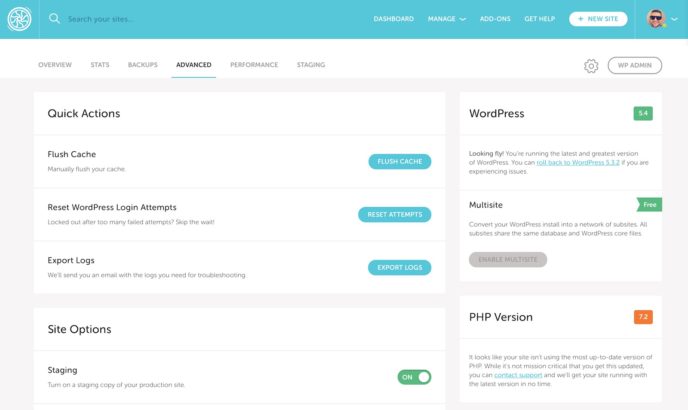
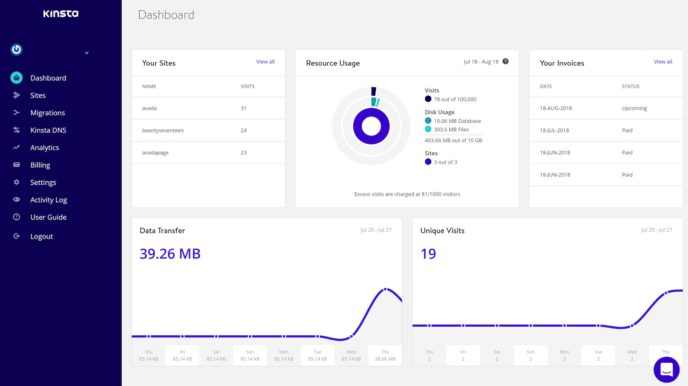

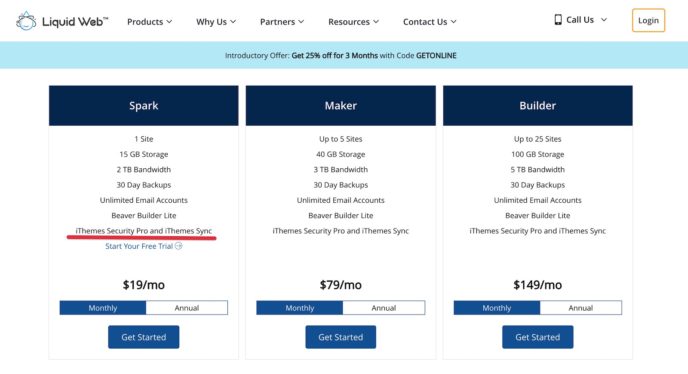
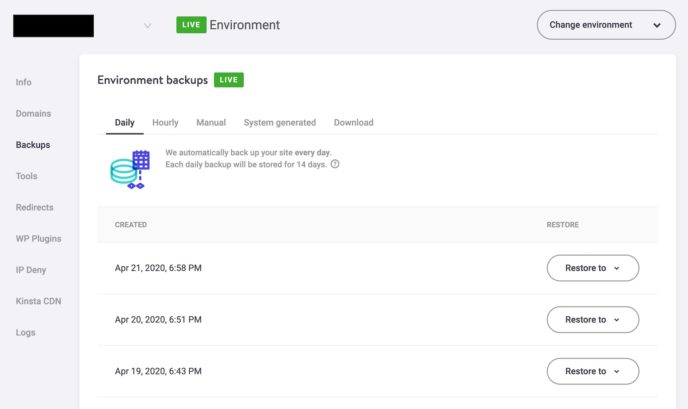
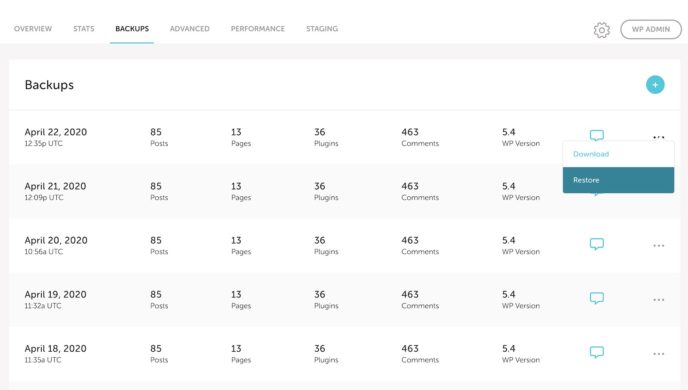
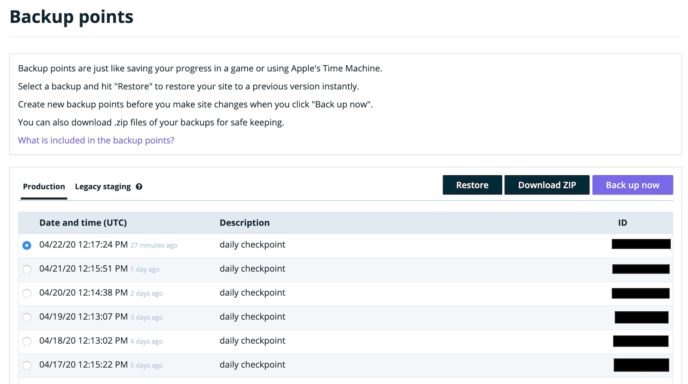

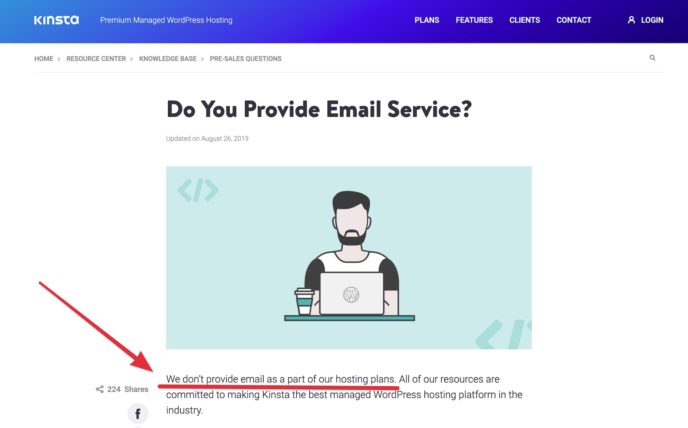
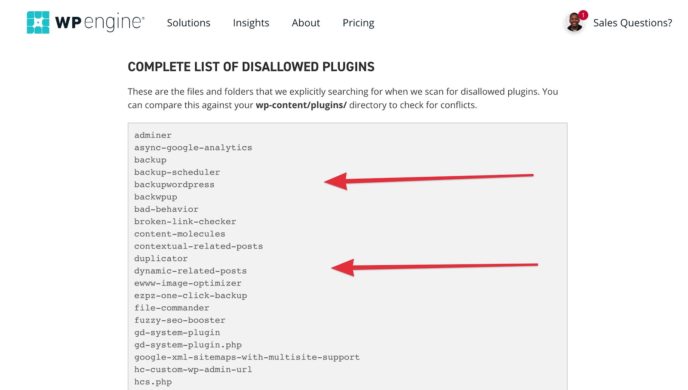


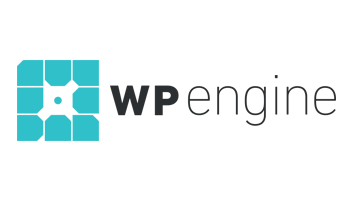
Mighty well-written article, Karol (especially like you throwing in “no bueno”). Very helpful. Thank you.
This is one of the best articles I’ve seen on the pros and cons of managed WordPress hosting. You covered everything really well.
I’m new to WordPress. The site I’m working on converting to WordPress has been done with an old 1990s wysiwyg HTML editor until now.
I’m trying to decide whether to stay with my large no-name shared host who gives excellent phone, chat and email support (so far at least after many years of hosting) or build with a semi-wordpress managed host like Dreamhost or Siteground where the support seems pretty limited by comparision to what I’m used to (from experience and the reviews I’ve read). For me, good, quick tech support is almost the most important thing above everything else.
My only question/surprise about your article is that there is no mention of the fact that with cheap shared cpanel hosting you can do most things that managed hosts do with plugins, no? Selecting wordpress install from cpanel and subsequent setup options with plugins and themes presented was really simple. You probably can’t optimize for speed as well as managed but many other things are available with plugins (some of which I haven’t tried) such as performance security, optimization, caching, cdn, staging, backups, automatic rollback option, automatic updates, etc. e.g. Total Upkeep, Wordfence for some of these. All the other plugins for seo and ecommerce are available as well. Haven’t tried any others yet — just trying things at this point. Probably not as elegant and seamless as managed, but they work (so far), and you have more control. Or am I missing something?
If you have to manage multiple sites the shared cpanel/plugin approach may not be as practical. Just my thoughts so far as a total WordPress newbie.
My host recommends using the cpanel “WordPress Toolkit” to do the installation over Softaculous or other cpanel addons as it integrates with with cpanel better.
If the shared hosting service is providing cpanel and has installed the “deluxe” version of the WordPress Toolkit then a decent basic WordPress Toolkit dashboard is included (somewhat like what you’d find with a WordPress managed host) with options for backups (manual unless you set up a chron job), automatic updates, extensive security measures and options, cloning/staging, management of plugins, themes, databases, etc. all as part of cpanel IF you install using the cpanel Toolkit (“deluxe” version). Good plugins can take care of anything lacking in the toolkit.
Softaculous and other cpanel addons may work as well or better (never tried), but won’t be as integrated with cpanel.
The tech support guys with my host tell me they are very experienced with supporting their WordPress users. (About 1/3 of their customers.) So far they have been able to help me pretty quickly with and solve every issue I have run into.
One of the overnight techs (not great at the tier 1 level) did mess up and broke my test site after I asked him to move my WP folder, so they’re working on that now. After four hours since calling in on it I’m not seeing results yet, but I told him it wasn’t critical. (This IS the first time over many years that I’ve had that happen. A WordPress-knowledgeable tech would not have made that mistake.)
The main thing with using my existing low-cost shared hosting provider is that I’m working in an environment I’m already familiar with (cpanel) and I haven’t had to spend a dollar more so far. AND I keep all of my email accounts and settings using the UI I’m familiar with.
It would take a knowledgeable reviewer to determine if low-cost shared cpanel hosting using the Toolkit is a good alternative to WordPress managed hosting, but for me it’s working well so far. Performance might end up being the biggest issue depending on the host (will have to test after installing some plugins), but it’s not an issue at this point.
If this ever does get to be unworkable the site(s) can be cloned and migrated, though I don’t know how well that turns out for complex sites.
It would be interesting to see how a review and comparison with the cpanel Toolkit and WordPress managed hosting would turn out. A lot depends on the host of course. I would go with one that has good phone and ticket support as well as good performance.
Final update!
None of these tech support people know anything about WordPress except one who is a real pro. Otherwise I wouldn’t count on my host’s tech support for anything urgent with WordPress until you get the one pro (as long as he is there).
Also I did the WordPress install using the cpanel WordPress Toolkit but somehow ended up in Softaculous with the various support calls.
Here’s a correction to my comments about the cpanel Toolkit — BOTH of these WordPress in managers in cpanel have the same features. Softaculous is a bit more confusing, but ultimately works just as well.
Unless you’re prepared to be or get technical (which I am), I would go with a managed WordPress host with good tech support over standard shared hosting, at least with the host I’m on now.